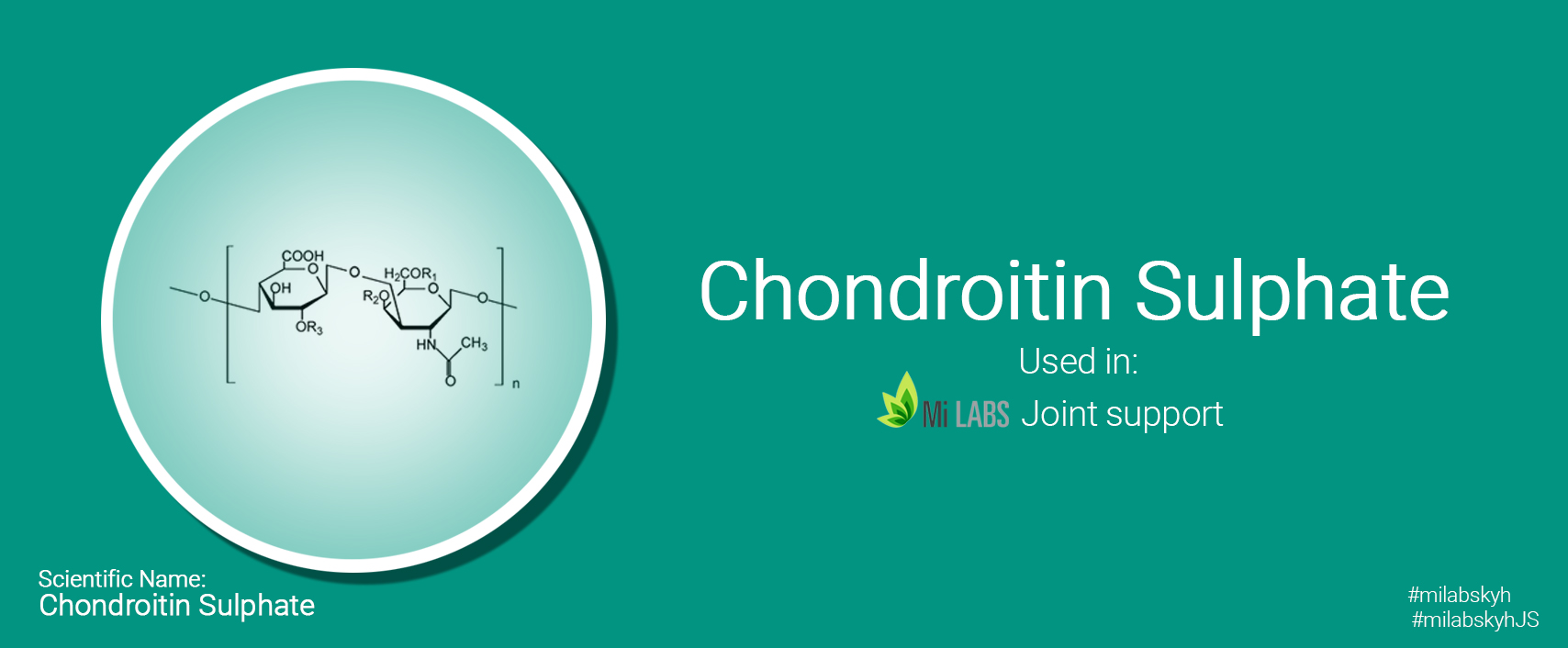

Written By Health Hub
July 21, 2017

Chondroitin sulfate is a sulfated glycosaminoglycan (GAG) that occurs naturally in the body as a component of the cartilage. The cartilage is a tough connective tissue that cushions the joints. Under physiological conditions, chondroitin sulfate is found attached with the body protein forming a proteoglycan. Chemically, it is a polymer of two sugars called N-acetylgalactosamine and glucuronic acid that are arranged in an alternating manner. The primary function of chondroitin sulfate is to provide resistance to compression.
Along with glucosamine, chondroitin is commonly used as a dietary supplement for the treatment of osteoarthritis. The most frequently found forms of chondroitin sulfate in the human body are chondroitin-4-sulfate and chondroitin-6-sulfate. The chondroitin present in the health supplements is usually extracted from animal cartilage.
The characteristic symptoms of the degenerative joint disease, osteoarthritis (OA), are increasing loss (wear and tear) of cartilage and inflammation of the synovial membrane. The main goal of OA therapy should be targeted towards the delay in the cartilage degeneration and promotion of the regeneration of the new cartilage structure.
Unfortunately, the current treatment scenario is directed towards the treatment of symptoms such as pain reduction and does not focus on the cause of the diseases (Jerosch). Both in vito and in vivo studies suggest that chondroitin sulfate acts as a chondroprotective substance that is highly recommended in the management of osteoarthritis (OA) (Henrotin et al.). It is considered to be one of the symptomatic slow-acting drugs in OA (SYSADOA).
Chondroitin sulfate delivers nutrients to the joint cartilage and helps to inhibit the enzymes that degenerate joint cartilage. It also triggers the formation of new joint cartilage. This helps to maintain the right amount of elasticity of the joint cartilage. Some studies also suggest that chondroitin sulfate can stimulate the synthesis of proteoglycans and decrease the catabolic activity of chondrocytes. It inhibits the synthesis of proteolytic enzymes and other factors that contribute to cartilage matrix damage and cause the death of chondrocytes.
On the whole, the action of chondroitin sulfate on the pathophysiology of osteoarthritis is probably due to its ability to maintain a proper balance between anabolism/catabolism in the articular tissues (Martel-Pelletier, et al). The pain and swelling caused by inflammation is also reduced by chondroitin sulfate to a significant extent. This is because of its potential to exhibit anti-inflammatory activity. The therapeutic efficacy of chondroitin sulfate has been tested during clinical trials on OA patients.
Pineapple, bromelain and end of misery of joint pain.
By admin on July 21, 2017
The medicinal use of this
Leave a Comment
Your email address will not be published.